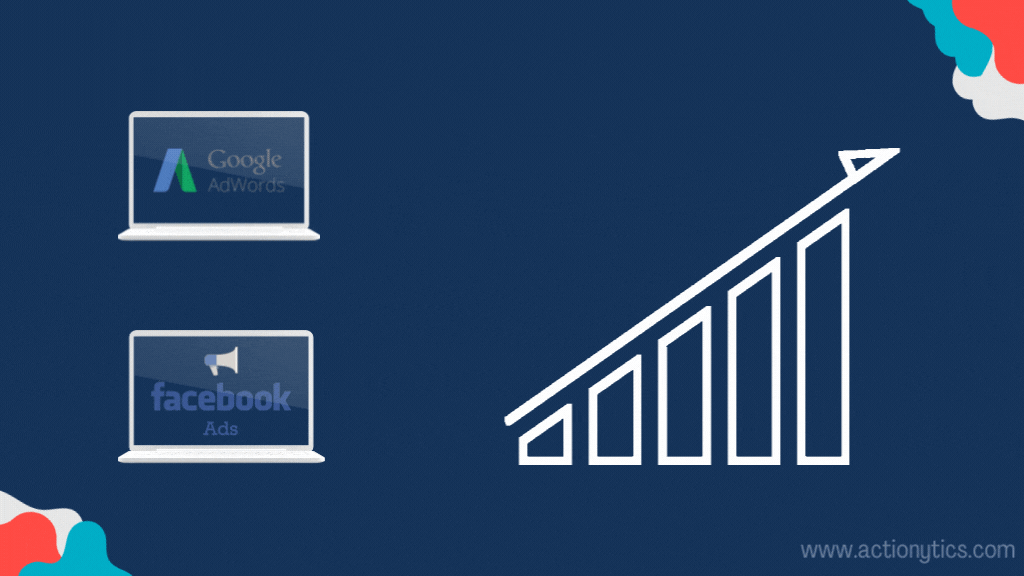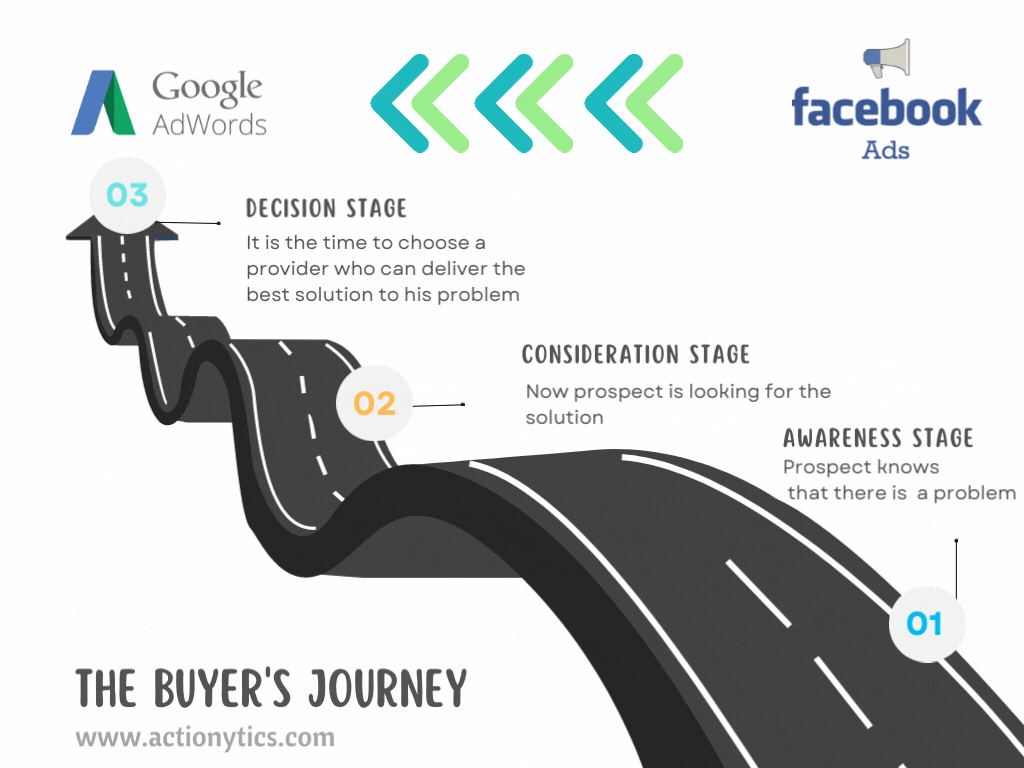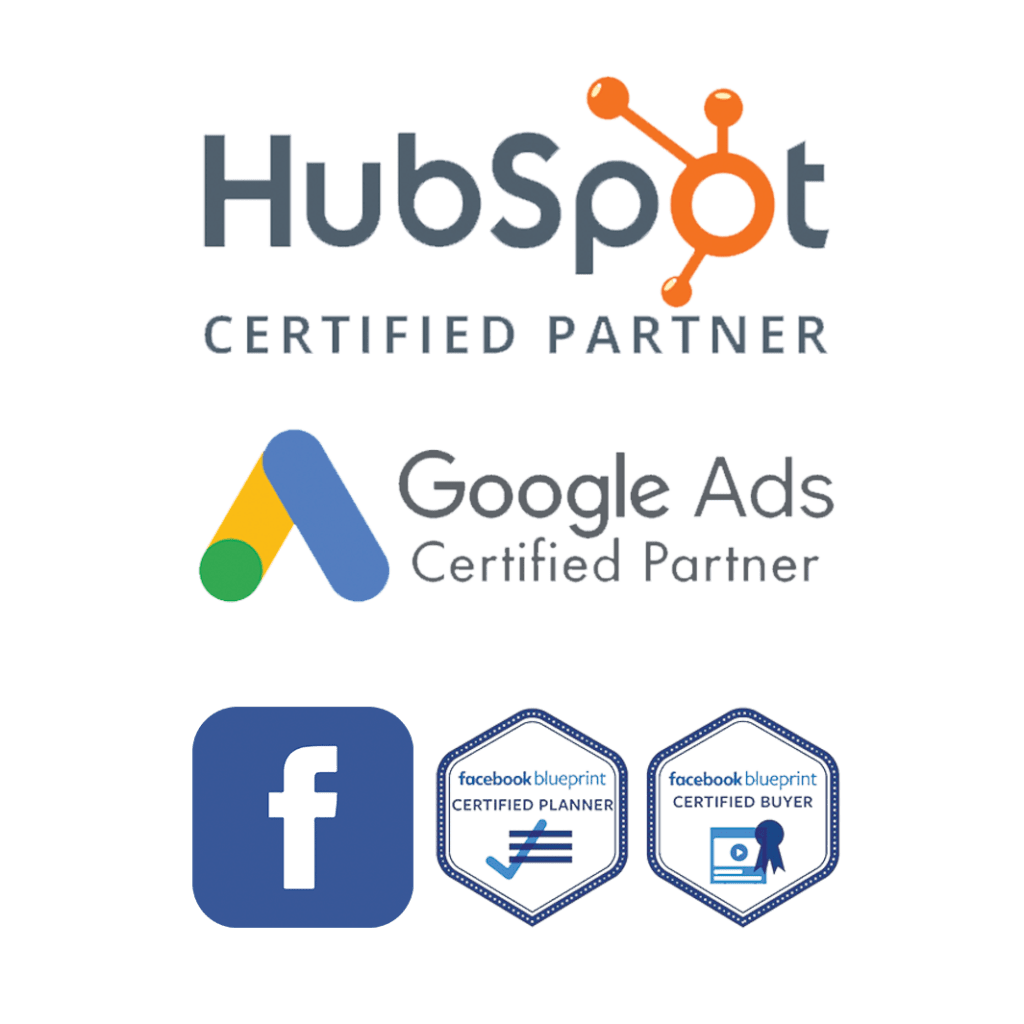If you were to choose your favorite ideal car, it would be an easy pick. Most of the time it’s a Ferrari, Lamborghini, or a an antique Ford Mustang! But if you were given a specific budget, a destination you need to reach, and a certain time you must get there then searching for the right vehicle to get you to success would be a project within itself.
At Actionytics, we have years of experience with marketing channels, and more specifically with paid channels. The question we get asked very frequently is about which one to choose when it comes to ads: the newly popular Facebook Ads, or the long time player Google Ads?
In order to help you make the right choice we’ve come up with the three most important questions you need to ask yourself to differentiate and choose between the two. Let’s dive in deeper:
What is the Goal of Your Campaign?
The nature of Google Ads is heavily tied to your potential customers’ need to search for products and solutions. Are they actively looking for you, your services or products, or even researching their own problem? If yes, then chances are Google Ads will be extremely helpful to your marketing. Google’s main differentiation is the searches it receives daily and by showing adverts to the users who are making the search, it can capture traffic with high buying intent if done right. Thus Google Ads can bring you a good share of “bottom of the funnel” traffic who are ready to buy from you.
On the other hand, Facebook Ads is more successful in bringing in consumers who are near the top of the funnel. That translates into great success for branding and product awareness if those are more likely to be your goals. The nature of Facebook Ads is such that since no one has actually searched for you or your products and were merely targeted or shown your ads, they have less reason to pursue the purchase of your product.
That said, Facebook Ads is ideal if you are targeting a certain group of customers where you know their demographics and persona well, and also when your products and services are new in such a way that buyers don’t have a specific need for them, or even can’t articulate or put a name on it themselves. Facebook and the nature of its social network identity can help greatly with brand discovery.
While you’d want to use both of these advertising systems down the road, if you know your campaign and overall marketing goals you can choose the one with higher priority especially when on a limited budget.
How Much is Your Budget and What Do You Expect From it?
Maximizing your “return on ad spend” or ROAS should be your priority with any ad campaign. That is how wen generally define success of an ad campaign. Simply put, it means how much revenue are you able to generate from say $1000 worth of advertising spend.
With Google Ads, your ad spend will be tied to keyword competition and ultimately keyword price (the price you pay for a click once your ad is shown and clicked for a search with that keyword match). If this is a well established business with high competition online, you will see high cost-per-click (CPC) prices that may go well above $10.
With Facebook Ads, you might be able to pull traffic from audiences relevant to you for a fraction of that price per ad click; maybe even under one dollar at times. So you can have more traffic, more visitors, and more chances for learning from your audience, testing and pivoting.

Let’s review a quick example to understand this in more depth. Let’s say you are located in Dubai and have a budget of $100 to put in either Google Ads or Facebook Ads. With Google, you’d like to rank for searches of the keyword “legal services” in that local area but the cost for that keyword is $25. With your budget of $3000 per month ($100 daily) you will receive just 4 clicks per day, totaling 120 clicks each month. If your business is new and your website is not that well optimized and tested in detail, you might lose a lot of these visitors and not gain the benefits of many leads and customers.
If you take the same $100 daily budget and invest in Facebook Ads, you could potentially reach more people daily (maybe even the same number of people you’d see from Google in one whole month). That’s why you’d be able to conduct experiments and have more opportunity to learn from what your customers need and how they flow within your website.
It’s all about how you can make your budget work best for you in relation to your goals. We’d normally recommend new and old businesses to make use of both services for different reasons, but if choosing between the two the major question is whether you need more traffic or more purchase intent.
What Stage in the Buyer’s Journey do You Need to Target More?
As mentioned above, Google Ads (and especially it’s search ads), is more aligned to bring in traffic with higher purchase intent. While Facebook Ads is geared more towards discovery and awareness building, with less intent. Certain platforms align better with certain stages in the customer journey leading up to the sale.
Facebook with it’s nature as a social networking platform, will almost always serve as a better place to provide discovery opportunities, build up hype towards brands and products, and bring in people who are likely to explore and share their interests in their circle of friends. But you can’t expect them to be actively searching for products and services like yours.

Contrastingly, it’s unfathomable that Google receives over 5 billion searches each and every day. Although these searches span across all stages of the buyer’s journey, you can still pull out a specific subset of searches that match the lower end of the funnel and indicate high purchase intent. This is done by targeting a subset of keywords that include high intent indicators. For example if you search for “action camera price”, you are most likely interested in purchasing an action camera in the near future.
Help Us Help You
How does your business look at paid ads? What are you trying to achieve in the short term or on the long run that makes Google or Facebook more appealing to you. Let us know if you need any help and we can set up a quick call for a consultation together.

